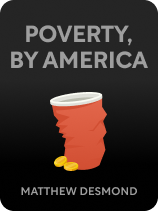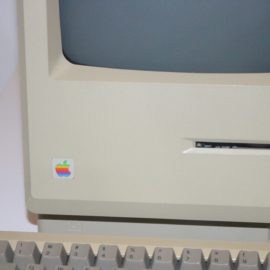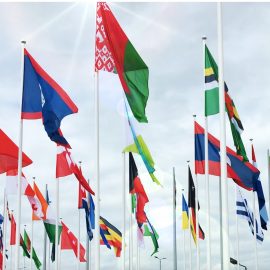

This article is an excerpt from the Shortform book guide to "Poverty, by America" by Matthew Desmond. Shortform has the world's best summaries and analyses of books you should be reading.
Like this article? Sign up for a free trial here.
Which developed nation has the most poverty? What effect does poverty have on people? Which comes first: economic security or better choices?
In Poverty, by America, Matthew Desmond argues that poverty in the US persists because it benefits many Americans to keep a share of their fellow Americans in a state of want. He issues a call to arms to readers to examine their role in benefiting from and perpetuating the cycle of poverty.
Read more for several Poverty, by America quotes that provide insights into the book’s ideas.
Poverty, by America Quotes
We’ve put together several Poverty, by America quotes and provided them along with some context to help you understand Desmond’s points.
“This is who we are: the richest country on earth, with more poverty than any other advanced democracy.”
Desmond writes that the United States, despite its vast wealth and prosperity, suffers from a level of poverty and inequality unseen anywhere else in the developed world. According to Desmond, one in nine Americans and one in eight children live in poverty (defined by the US federal government in 2023 as an individual earning less than $14,580 per year or less than $30,000 for a family of four). He writes that a smaller—but still shockingly high—number of Americans live in deep poverty, on par with the poverty of the poorest people in developing nations like India or Bangladesh.
“Poverty does not just deprive people of security and comfort; it siphons off their brainpower, too.”
To truly understand the phenomenon of poverty in America, writes Desmond, it’s crucial to explore what it actually feels like to be poor. He writes that poverty is a complex state of being, encompassing a multitude of experiences, emotions, and consequences that go far beyond financial hardship. Desmond stresses that poverty is a wrenching, soul-crushing experience, imbued with physical and psychic pain, representing a loss of freedom, agency, choice, and options for those ensnared by its grasp.
“Vocal segments of the American public, those with brain space to spare, seem to believe the poor should change their behavior to escape poverty. Get a better job. Stop having children. Make smarter financial decisions. In truth, it’s the other way around: Economic security leads to better choices.”
Desmond further writes that those who cite non-traditional family structures as a reason for poverty’s staying power get the causal relationship wrong. People aren’t poor because they don’t start families; they can’t start families because they’re poor.
Also, Desmond observes that politicians often associate poverty with a perceived lack of work ethic. Desmond also finds this argument lacking. He notes that, during the Covid-19 pandemic, the CARES Act, which among other provisions provided direct cash assistance and expanded unemployment insurance to families living in poverty, demonstrably alleviated poverty rates during the time those benefits were being distributed. If it were true, however, that the benefits from the CARES Act were discouraging work, then we’d expect to see an increase in the employment rate once the benefits expired. But, as Desmond notes, this isn’t what happened at all.
“Most states still allow restaurant and other service workers to be paid a subminimum wage, which is a meager $2.13 an hour at the federal level, forcing nearly five million workers to survive on tips. (Where did the concept of subminimum wage come from? It’s a vestige of slavery. After emancipation, restaurant owners hired formerly enslaved Black workers for free. They had to rely on customers’ charity.) This is indefensible.”
One powerful way to empower workers, writes Desmond, is to reinvigorate the labor movement and strengthen unions. The existing legal framework, which requires workers to organize company by company, often puts unions in a disadvantaged position—since employees at each company need to mobilize and negotiate separately, requiring unions to invest significant time, effort, and resources in the logistics of coordinating this. This fragmentation of organizing efforts can also make it easier for employers to target and disrupt specific campaigns.
“By one estimate, simply collecting unpaid federal income taxes from the top one percent of households would bring in some $175 billion a year. We could just about fill the entire poverty gap in America if the richest among us simply paid all the taxes they owed.”
Desmond recommends cracking down on the nation’s exorbitant welfare for the rich—largely through preferential treatment in the tax code—and reinvesting it into anti-poverty initiatives. He notes that there is approximately $1 trillion in unpaid tax annually, a disproportionate share of which comes from the wealthy. He recommends stepping up enforcement of these unpaid taxes, while also increasing the top marginal rate (the taxes on the portion of income that falls within the highest income bracket) and corporate tax rates, which currently stand at nearly half of what they were in the 1970s.

———End of Preview———
Like what you just read? Read the rest of the world's best book summary and analysis of Matthew Desmond's "Poverty, by America" at Shortform.
Here's what you'll find in our full Poverty, by America summary:
- Why the United States suffers from so much poverty and inequality
- How some Americans benefit from the poverty of others
- How we can empower the poor and eradicate poverty






